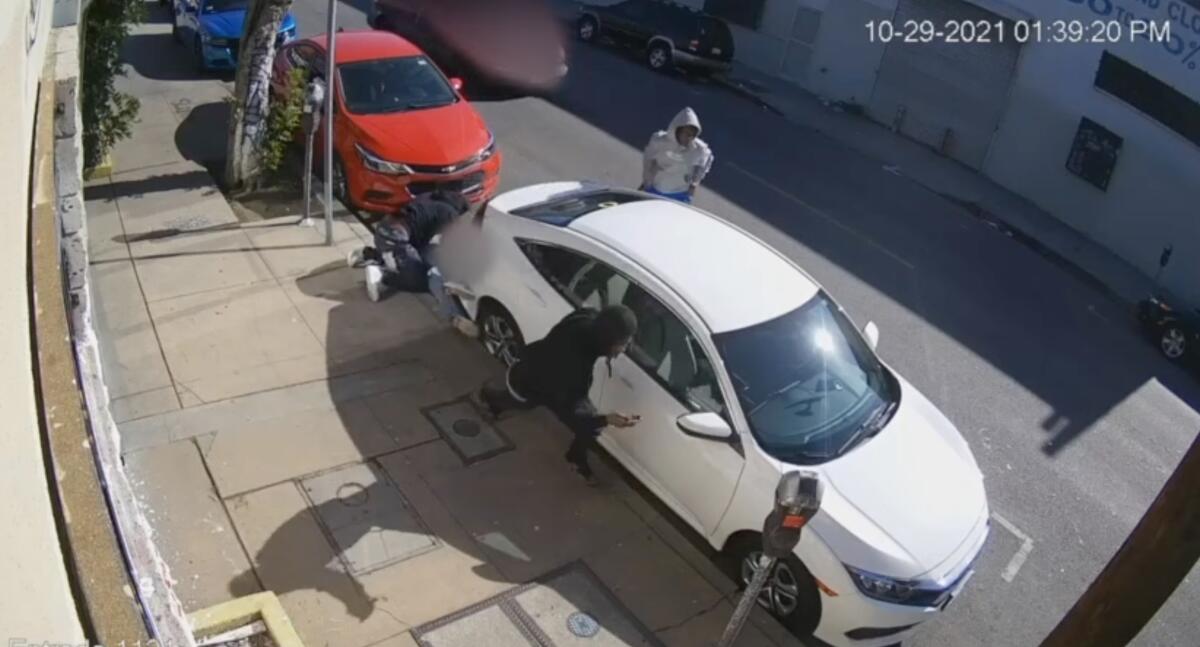Letters to the Editor: Don’t just say crime and income inequality are linked. Prove it

- Share via
To the editor: Erika D. Smith, writing about gangs stalking and then robbing wealthy Angelenos, cites the opinion of an expert that “there is a positive relationship between income inequality and crime,” but she offers no evidence for the claim. Furthermore, she makes the mistake of equating correlation with causation.
Reading Smith’s column, we learn nothing about who the criminals are, their motives, how they operate or even how poverty leads to crime. Rather the argument is made that the rise in criminal activity is actually a pursuit of justice. Smith asks, “Are we really surprised that some have turned to brazen crimes to even the score?”
Smith’s piece does not do justice to the victims and the perpetrators of violent crime, or the intelligence of her readers.
Aron Rudnick, Inglewood
..
To the editor: I must confess that my level of pity for those robbed of the likes of $300,000 watches is all but negligible — this despite my having never begrudged the success of others that allows them to live in abundant comfort.
But to purchase such a ridiculously expensive timepiece solely to flaunt one’s wealth strikes me as obscene, especially considering the thousands in our city who each night sleep in tents on sidewalks and beneath freeway overpasses.
In attempting to “impress” this way, I would suggest the only impression conveyed is that of a glaring lack of concern for others. Just think how many currently homeless people could be helped with $300,000.
William P. Bekkala, West Hollywood
..
To the editor: Smith decries offering simplistic theories about rising crime and proceeds to do just that in her column. Any cursory reading of crime waves in American history will teach people to check their ideology at the door.
We actually experienced significant decreases in crime both nationally and in L.A. during the Great Recession. In addition, the great economic expansion of the 1960s was accompanied by the start of a crime wave that lasted decades.
As for current trends, there was significant economic assistance from the federal government during the pandemic, which put money in people’s pockets, and poverty has actually decreased.
Crime and crime waves are the ultimate multivariate equation. This is not to deny an association between poverty and crime. However, a majority of those in poverty are not criminals, which raises the question about what the appropriate interventions are.
What we could be witnessing is simply statistical noise due to the pandemic. That may not be conducive to a catchy campaign slogan, nor is it very satisfying to the ideologues (from left or right) who don’t get to apply their favored narratives.
Michael Baker, Los Angeles
..
To the editor: I agree with Smith. Income inequality is so blatant, yet we close our eyes to the increasing destitute among us.
The Business section in the same day’s paper carried an article on $500,000 houses for those on a budget. Anyone else see a disconnect?
Nancy Lemos, Lancaster







